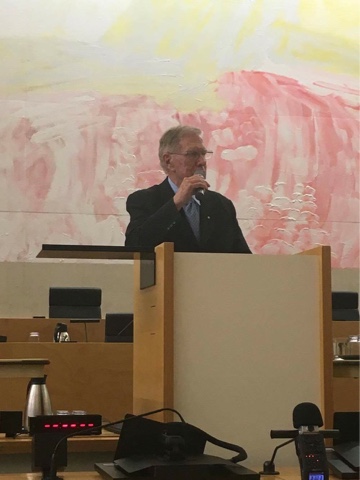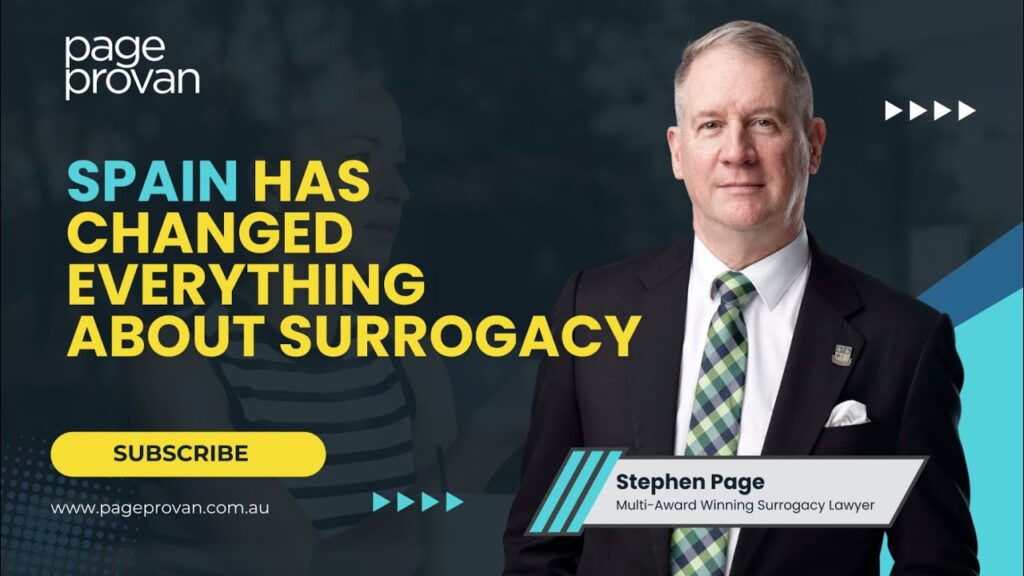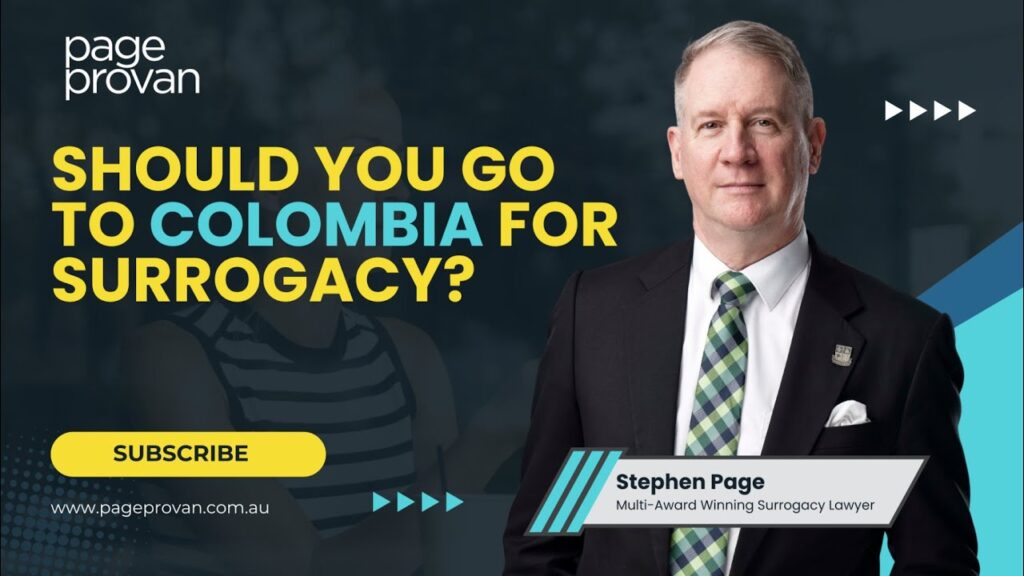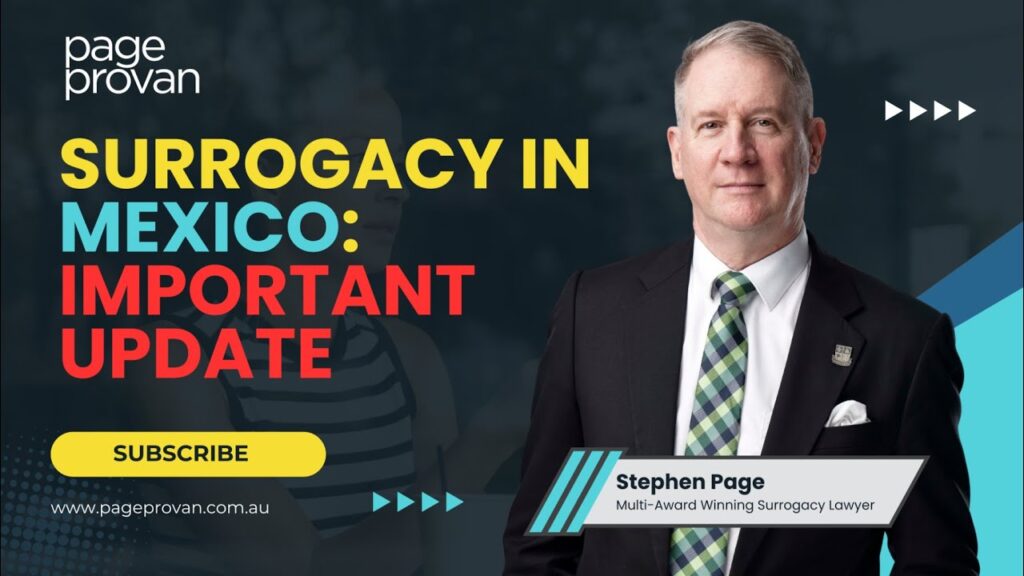
On Friday night I spoke at the 6th anniversary of the LGBTI Legal Service in the ceremonial Banco Court of the Supreme Court of Queensland. The court was packed, with about 200 in attendance, and many of the “great and the good” in the words of former High Court Justice Michael Kirby, who was the guest of honour. Those in attendance included Queensland Chief Justice Catherine Holmes, President of the Queensland Court of Appeal Margaret McMurdo, Queensland Attorney-General Yvette D’Ath, other judges and politicians, lawyers and law students.
After a moving welcome to country by Uncle Sam Watson, who explained that what has been known since time of Captain Cook as Moreton Bay, has been to the local Jagera and Turrbal people as Qandamooka, proceedings were started by President Matilda Alexander.
Michael Kirby’s speech
Mr Kirby talked of his opposition to the plebiscite. He pointed out that a plebiscite was not required for the removal of the white Australia policy, the ability to have Aboriginal land rights or other controversial issues at the time dealing with the interests of minorities. Parliament just went ahead and did its job. He feared for the impact of the plebiscite on the mental health of LGBTI people, especially young LGBTI people, because of the possibility of damaging debate occuring during the whole process. However, he expected that we would muddle through it and get it right, eventually legislating for same sex marriage and removing other discrimination.
He also talked about how in his fight for civil rights back in the 60’s and 70’s gay rights were not talked about. He did not come out until much later- indeed not until he was a judge of the High Court. His being gay and having a gay partner was hidden, and it was only the determination of his partner Johan that resulted in Kirby telling the world, via Who’s Who, that he had a male partner and coming out.
A sad part of the speech was that there is no inevitability with the rise of gay rights. In Belize, a former British colony in central America, the Supreme Court has just held that the criminalisation of sodomy was against that country’s constitution, which might help change things in the other 17 former British colonies in the Caribbean- all of which criminalise sodomy. In other places, such as India, things are not looking so good.
In Indonesia, the world’s largest Islamic state and the world’s largest Islamic democracy, there are moves to criminalise gay sex- apparently due to it being incompatible with Islam- when due to Dutch colonial laws it was never criminalised (as opposed to all British former colonies).
In Kenya, police are empowered to conduct internal anal examinations- to determine if illegal anal sex has occurred. As Mr Kirby pointed out- these “examinations” are not for any forensic or medical purpose- their whole purpose is to humiliate.
So it is essential to remain vigilant!
He thanked the volunteers, both lawyers and non-lawyers, for their efforts with the service. I was mentioned for my international work with surrogacy and The Hague (as to a proposed international surrogacy convention) and Justice Forrest of the Family Court was singled out for praise as he had been in a previous life a particularly diligent and warmhearted associate to then Justice Kirby of the NSW Court of Appeal.
My speech
My speech to the ceremony is here:
Not before time
6thanniversary of the LGBTI Legal Service
Supreme Court of Queensland, 19 August, 2016
I would like to pay my respect and acknowledge the Turrbal people, the traditional custodians of the land on which this event takes place and also pay my respect to Elders both past and present.
I want to start with a quote, by JS Mills:
“The demand that all other people shall resemble ourselves, grows by what it feeds on. If resistance waits till life is reduced nearly to one uniform type, all deviations from that type will come to be considered impious, immoral, even monstrous and contrary to nature. Mankind speedily become unable to conceive diversity, when they have been for some time unaccustomed to see it.”
This inability described by Mills to see diversity is something that my husband Mitchell and I, and other couples in same sex relationships have to deal with every day.
We married last year in Vegas. Elvis did not officiate. We had a dozen at the ceremony and 250 in four countries watching via streaming. Our marriage is not recognised here. This failure to recognise what is a basic human right- the equal right to marry- will remain until our laws change.
For those who married or entered into overseas civil unions and have now split up, there are other issues. Their relationship may not be recognised at home. Their ability to divorce or to end their legal relationship may only exist overseas, and may because of jurisdictional rules, not be available to them.
Everyday, or almost every day, Mitch and I are the objects of hate for doing something that comes very naturally to us. We have the “temerity” to hold hands in public. For that alleged brazenness, almost every day we are glared at. Sometimes it is the look of surprise or shock. More commonly it is the glare of hatred. The death stare. That look that tries to turn you into dust. How dare you? It is against the order of nature! This look is given by strangers- who don’t know us. Often it’s by someone walking past, holding hands with their opposite sex partner. The hypocrisy is obvious. We don’t give the death stare to opposite sex couples walking past, holding hands. Instead our reaction is to turn the other cheek and smile back.
But then about once every couple of weeks, that hatred is stated verbally. Homophobic remarks are used. Remarks I had never expected to hear in my lifetime, but for which we are expected to receive without comment. Well sometimes we comment back! This abuse has been for us surprisingly worse in Sydney and Melbourne than it is here- but nevertheless, it still happens.
And these looks and hate speech remarks are made anywhere. We have received them in the city, New Farm and the Valley, for example. There is no place where there is a protective bubble where you can say- people with homophobic and transphobic attitudes cannot walk the streets here. Nowhere is safe.
I dream of a day when bigotry and prejudice will be at an end and we all will be treated equally.
I dream of a day when we are not judged on our sexuality but judged on the content of our character. It is a sad reality that there is a need for the LGBTI Legal Service.
In 2009 I became aware of the new wonder of the age. It was proposed that there be an LGBTI Legal Service. I thought- not before time. I don’t claim any responsibility for organising it, but as soon as I became aware of the likelihood of a service, I grasped the idea with both hands.
More to the point I was then volunteering at Caxton Legal Centre and I quickly got the feeling of both being wanted and unloved. The then co-ordinator Camielle Donaghey told me of the intended service and told me excitedly that I should go there. In other words- we don’t want you anymore!
I decided to do all I could to make the service exist and succeed. What I did was to write. I wrote about the proposed service in a column I then had in Qnews. I wrote about it in my Australian Gay and Lesbian Law Blog. I wrote a list of all the lawyers I knew who might be candidates as volunteers. Then I wrote or telephoned each one of them to try and enlist them to join up. Happily, I was able to persuade quite a few colleagues to come and help out. Some stayed for some years.
Somehow by sheer good fortune on a night in July 2010 I was rostered on opening night. Also on that night were Caelli Lovell, a commercial lawyer, and two non-lawyers- Julie Howes who was the driving force, and the long time secretary – gracious Coral Logan.
The Queensland Aids Council generously gave its space for the service to operate. As it still does. This Service remains, despites its successes, the only unfunded community legal centre in Queensland. It operates on the smell of an oily rag. It exists through the generosity of its volunteers and of the Queensland Aids Council. Please give deep. Please tell politicians that it needs to be funded. Its service is essential to the LGBTI people of this State. But I digress.
So here we were on opening night- and we had an embarrassment. Well everyone else had two embarrassments, but I only had one. The embarrassment we all had was that despite all the hoopla we had no clients. Not one! It was pretty deflating- but the service has long gone past that problem. The embarrassment for the other three, but not mine, was that I turned up bearing gifts. Pink gifts, of course. One was a bottle of pink bubbly, and the other a lovely sponge with pink icing from the Shingle Inn. My cohorts that night looked at me oddly. My view was simple: this was an auspicious occasion and should be celebrated. However, in my rush from work, I had not bought any candles. The four of us then sat in this small room out the back, blew out the blackout candle that somehow had been found, ate the cake, drank the bubbles, and savoured the moment. But didn’t take a selfie!
I was privileged to continue to volunteer with the service until earlier this year, when other pressing duties on my time caused me to resign.
On World Aids Day, 1 December 2010, I was privileged to attend the official opening of the service by Michael Kirby, who came to Brisbane especially for the occasion.
Some years ago I was privileged to rally and march with other volunteers from the Service as well as many other community members in protest at funding cuts at what is again now the Queensland Aids Council.
I want to say what the Service stands for.
I don’t mean the literal, which is after all Lesbian, Gay Bisexual, Trans and Intersex- but more to the idea behind the Service.
What the Service stands for is one essential truth. That truth is the essence of our democracy- and that is that all of us, whatever our sexuality, are created equal, and therefore entitled to have the law treat us equally. The Service from day one has strived to enable this truth. It has done so by the provision of free legal advice- both in person, and over the phone. It has also done so by lobbying for change- so that the law should no longer discriminate against LGBTI people. There is unfortunately still a way to go.
Six years ago the idea of this party would have seemed an absurd idea. The hangover of the dark years of the past was still haunting us in Queensland. After all it was only in 1990 that sodomy was decriminalised in this State, by the Goss government, following the revelations of the Fitzgerald inquiry that keeping sodomy a crime meant that men were being blackmailed, resulting in the potential for corruption. These were the days when we were told that there would be no gay and lesbian mardi gras in Queensland- well, Pride march and fair are on 17 September by the way.
In 2000 the now member for Brisbane Central, Grace Grace was a union official. She took part in the writing of a new industrial award- to allow workers to take time off to care for their same sex partners. I got roped in to help with the drafting. We didn’t know at the time if the award would be accepted or if the sky would fall. The sky didn’t fall, and with that first baby step safely out of the way, the Beattie government then legislated to remove most of the State based discrimination against LGBTI people.
There is more to go. I was privileged a couple of weeks back to speak at the announcement by the State government to amend the Adoption Act so that same sex couples, single people and those undergoing IVF will not be prevented from undertaking adoption. A worthy step. Hopefully those laws will be passed by the end of this year and will receive support from the Opposition. Hopefully this year we will also see laws to remove gay panic defence, and the expungement of criminal convictions for those who were convicted of sodomy and like offences in the past. Not before time.
Now it looks as though, finally, Queensland will catch up with the other States, and have an equal age of consent. No longer will 16 be the age of consent for everyone else, but those engaging in anal sex, it has been 18. Doctors identified the obvious health risks from teens being driven underground and not seeking to prevent the spread of HIV. Again, not before time.
The removal of these discriminatory laws has not been a smooth ascent to the sunlit uplands of freedom. It has been necessary for us to fight to retain rights and to remove discrimination. Two examples of how rights were removed or were sought to be removed, because we don’t have a bill of rights or similar protection in this State (and hopefully will have one soon) occurred after the election of the Newman government.
In June 2012, the then Attorney-General announced that the Government would roll back the surrogacy laws, to a bill earlier put forward by Lawrence Springborg- namely to criminalise gays, lesbians and singles for undertaking surrogacy, and to remove the recognition of the non-birth lesbian mothers as parents of their children.
Seven of us decided to take on the Government. We had three activists, an ex-advertising guy, a psychologist, a celebrity dog trainer- and me. I was told that I was being brave and foolish- after all the government had all the power, and the chances of success were close to zip. I said that given that my prominence in this area of practice, not to take action would be cowardice. I thought that the chances of our success were between 1 and 3%, but we had to take a stand. What was proposed was wrong.
We launched a petition. It was depressing. We got 5000 signatures to not change the law. A rival petition, supporting the changes, which said incorrectly that under the International Convention on the Rights of the Child that it was the right of a child to have a mother and a father, got 10,000 signatures.
Our strategy was simple- point out the absurdity of the proposals, engage with others to assist, and seek to delay the proposals.
But I was silly. After we launched publicly, the seven of us went to have lunch, when I said this stupid thing: “So who’s in charge after today?” It was one of those moments when I should have kept quiet. I was immediately elected as the convenor of Queenslanders for Equality.
The proposal to remove the rights of lesbian parents was dropped first- as it would have meant that Queensland was out of step with the other eight jurisdictions. A woman would not have been recognised as a parent at birth, but if the parties split up, she would have been recognised as a parent for the purposes of child support.
Next to go was the idea of up to three years jail for those who wanted to have children via surrogacy.
But the idea did not disappear, even despite the statement of the then President of the Queensland Law Society, Dr John de Groot, that the proposals represented a “miscarriage of justice”.
By April 2013, it seemed that interest in the issue had died. Phil Brown and I were the only ones still campaigning. On the Monday Phil sent me an email telling me that he was burnt out and couldn’t campaign any more. I understood where he had got to- but I then thought: “Oh great, me against the government.” The burden on my shoulders weighed even more heavily. It was depressing. And then three days later the story broke- the proposal to wind back the surrogacy laws had been put on the backburner. We had won!
One of the things that saddened me the most was that one of our league of seven had been vilified. Farmer Dave was a celebrity dog trainer who had been on Big Brother. He had been a member of the LNP, but had to leave it because he felt excluded because he was gay. His natural tendency was to support the general philosophy of the LNP- for which some in the community shamefully vilified him. He copped a lot of abuse- from those who blamed him for being gay and supporting a government which was seen as attacking LGBTI rights.
And now we see how times have changed. Lawrence Springborg when he was Opposition Leader announced that the LNP would support expungement of criminal convictions and the removal of gay panic defence. When the Civil Partnerships Bill was debated earlier this year, the LNP allowed a conscience vote- and almost half the LNP members voted in favour.
But there is still much more to be done.
The LGBTI Legal Service is lucky to have the goodwill of the community supporting it, and of the local elected representatives: Councillor Vicki Howard, Grace Grace whom I mentioned before- and I want to mention the new member for Brisbane, Trevor Evans. Going into the last election, the electors of Brisbane had for the first time three candidates from some of the LGBTI spectrum. The Labor candidate was ex-Army officer Pat O’Neill, who is openly gay. The Veterans Party candidate Bridget Clinch had also been in the army and was the first trans candidate in Australia anywhere. The LNP candidate was also openly gay: Trevor Evans. Trevor was elected. Congratulations!
I have been privileged to be a part of the LGBTI Legal Service. The volunteers, both lawyers and non-lawyers, give their time up willingly. Clients have a myriad of legal problems- civil, criminal, discrimination and family law. The need for the Service is self-evident in my eyes at least, and for the hundreds of clients who have accessed it. Many of the clients who come to the service cannot afford legal advice elsewhere, or do not know where to turn. The Service has been at the forefront of helping clients and pressing for legal reforms- and may it continue for a long time to come, hopefully with some money! I would encourage as many here as possible to join as members of the service.
I want to finish with a poem:
Yeats (Cloths of Heaven)
Had I the heavens’ embroidered cloths,
Enwrought with golden and silver light,
The blue and the dim and the dark cloths
Of night and light and the half-light,
I would spread the cloths under your feet:
But I, being poor, have only my dreams;
I have spread my dreams under your feet;
Tread softly because you tread on my dreams.














